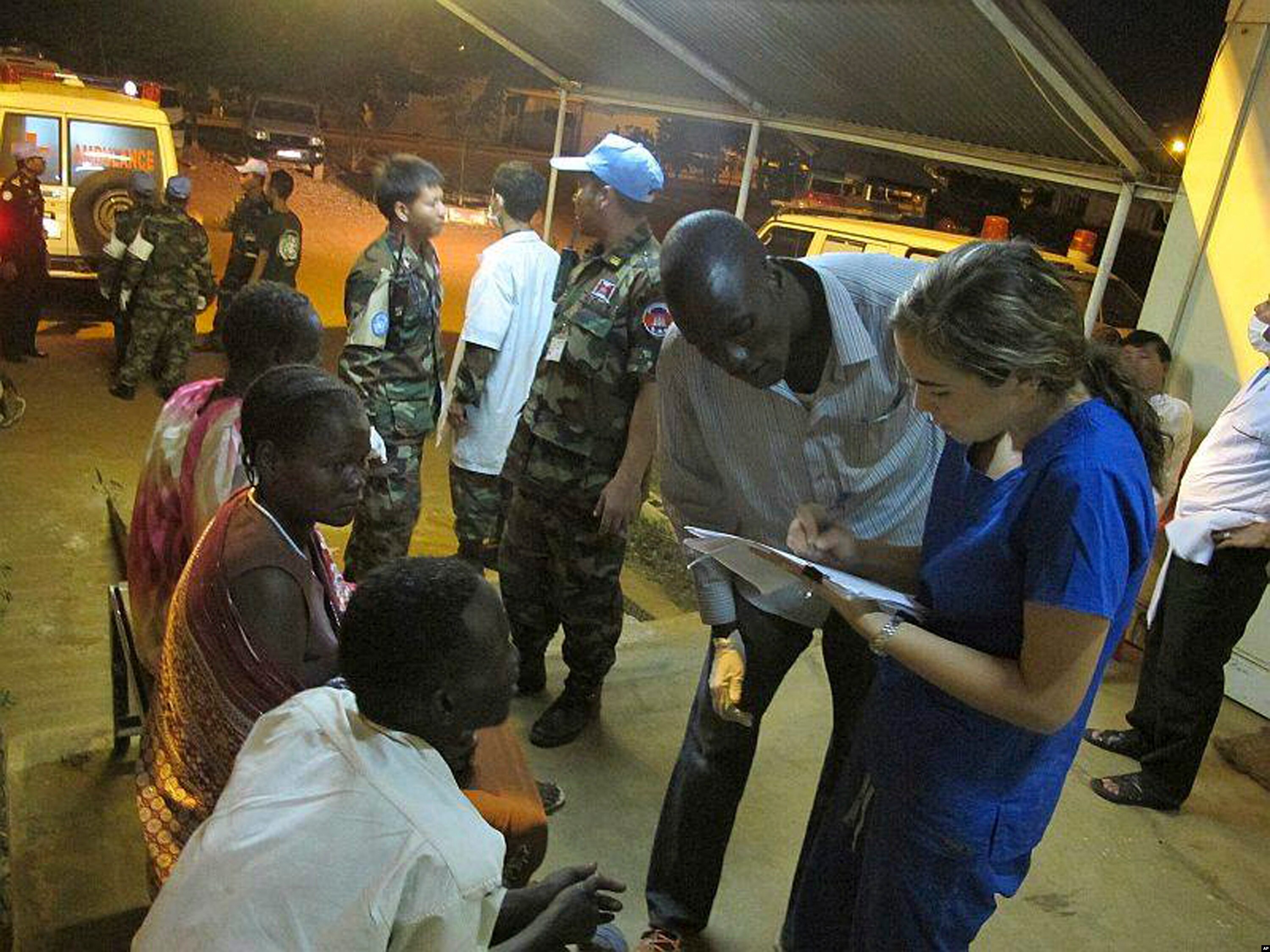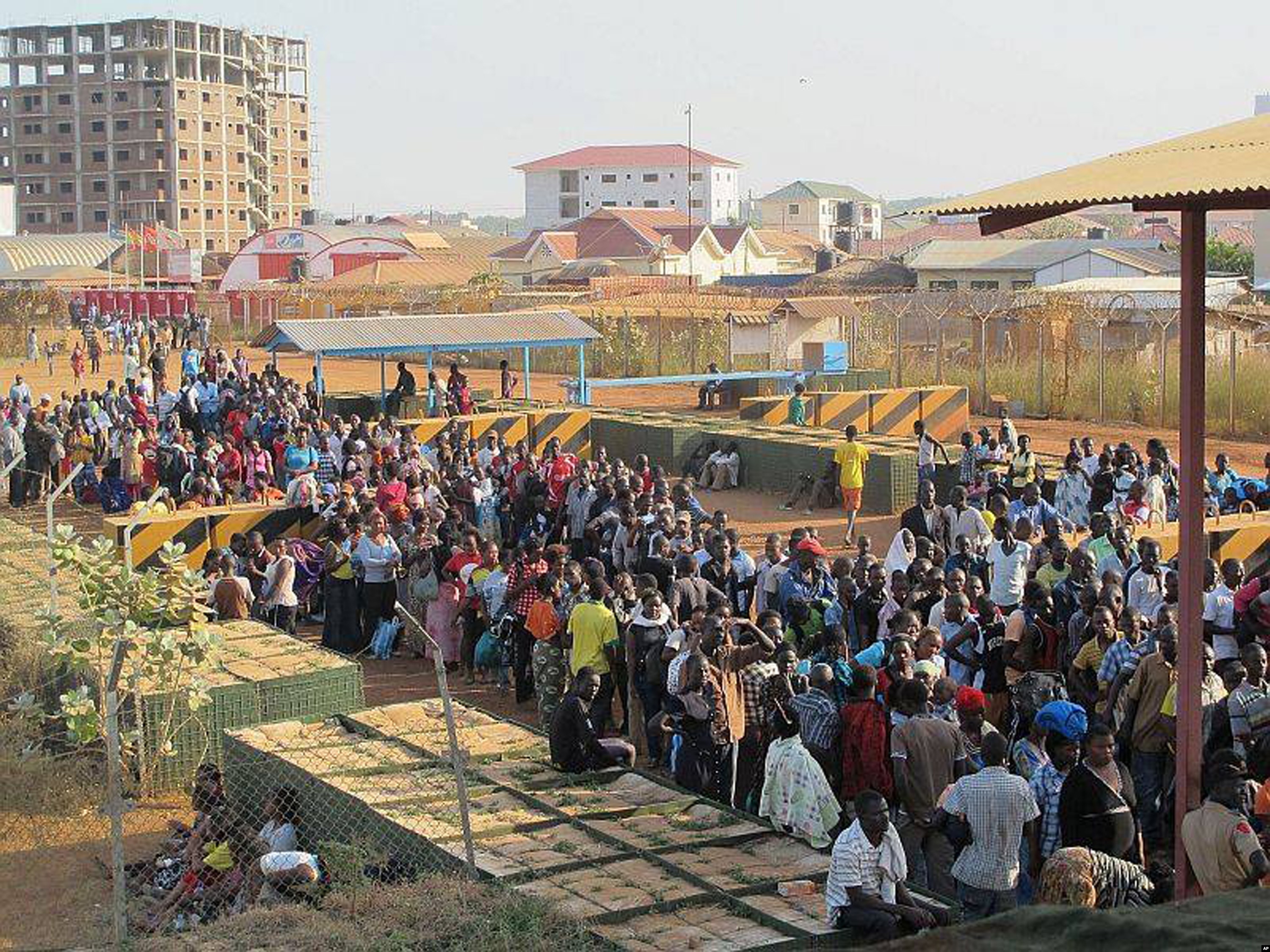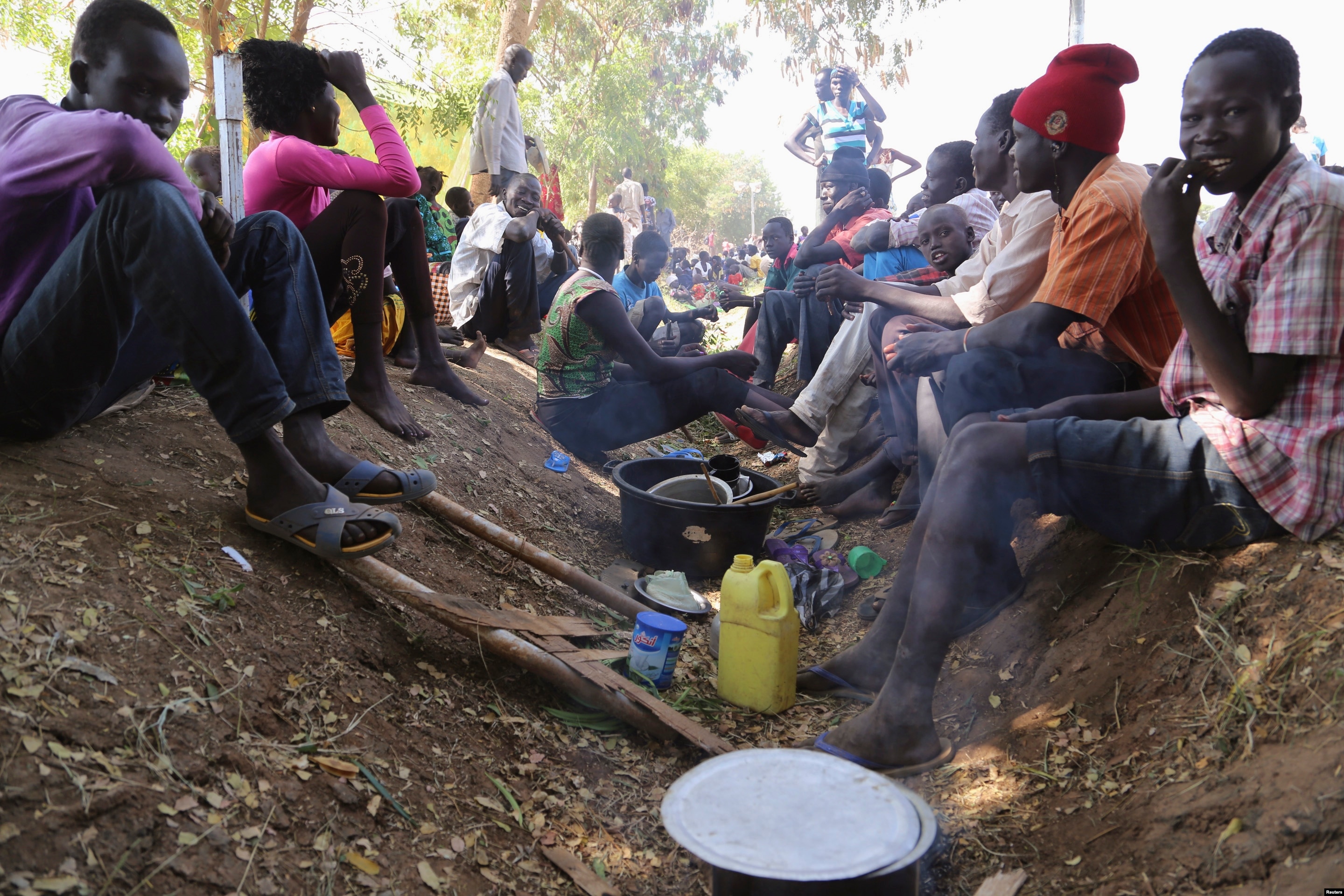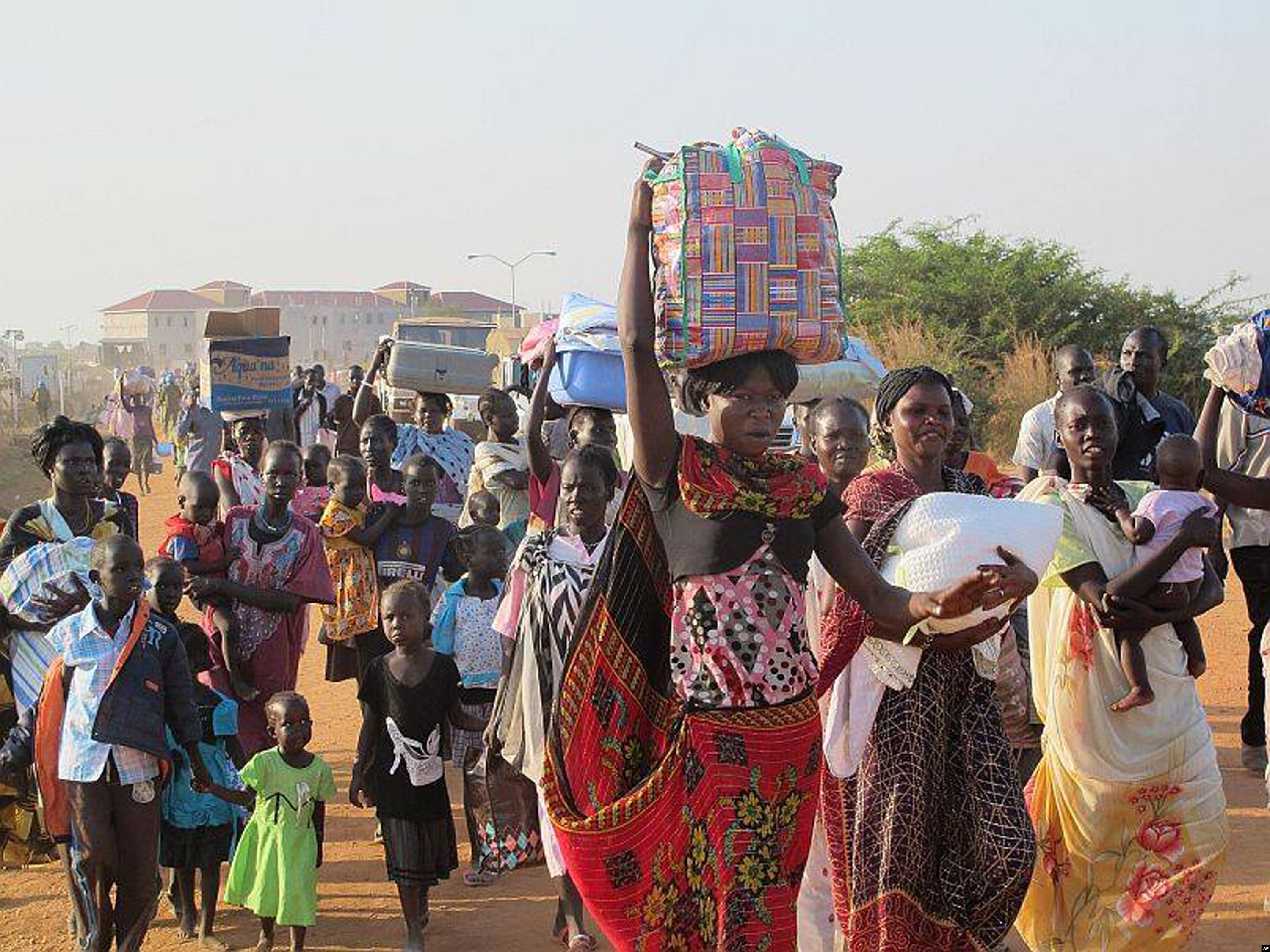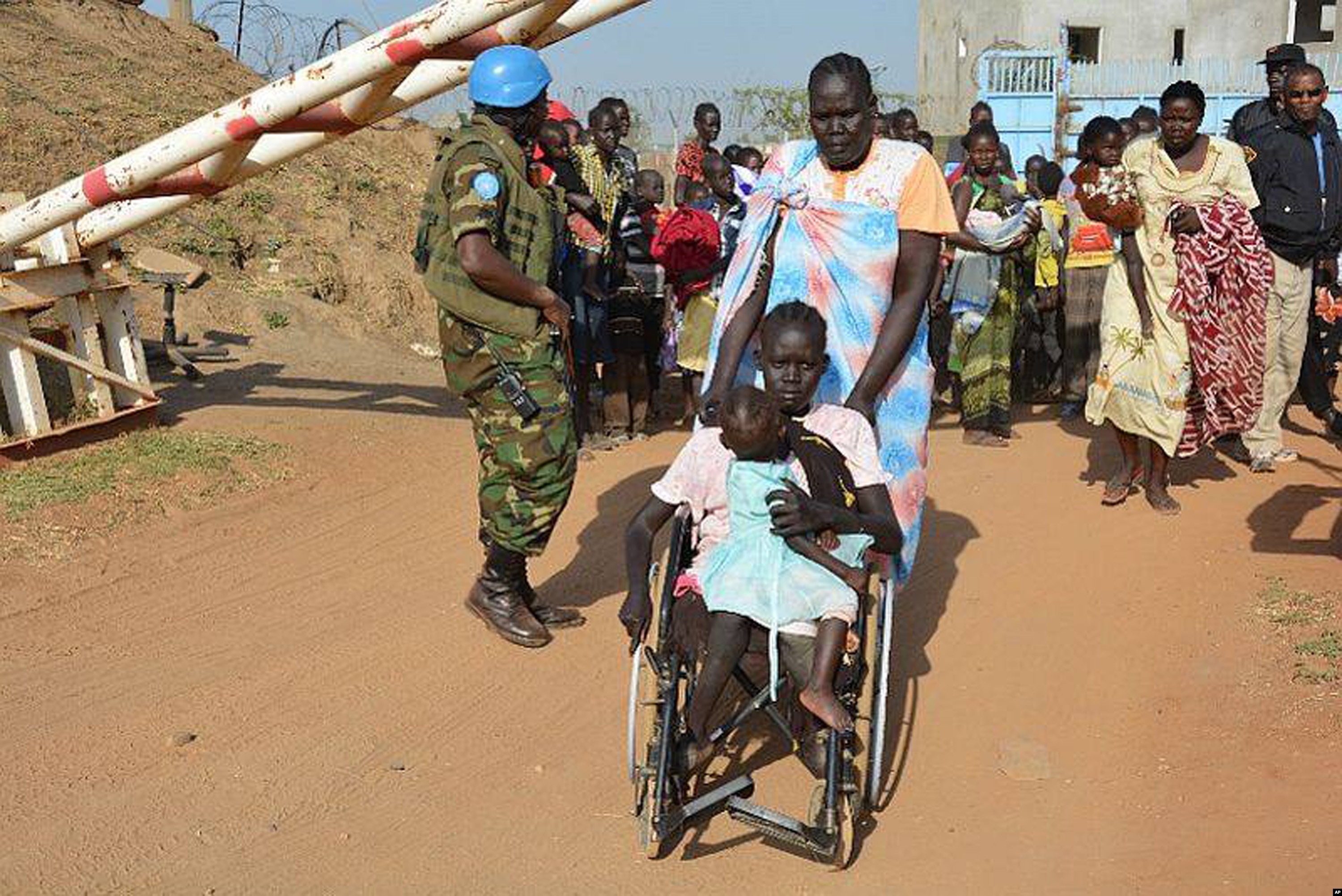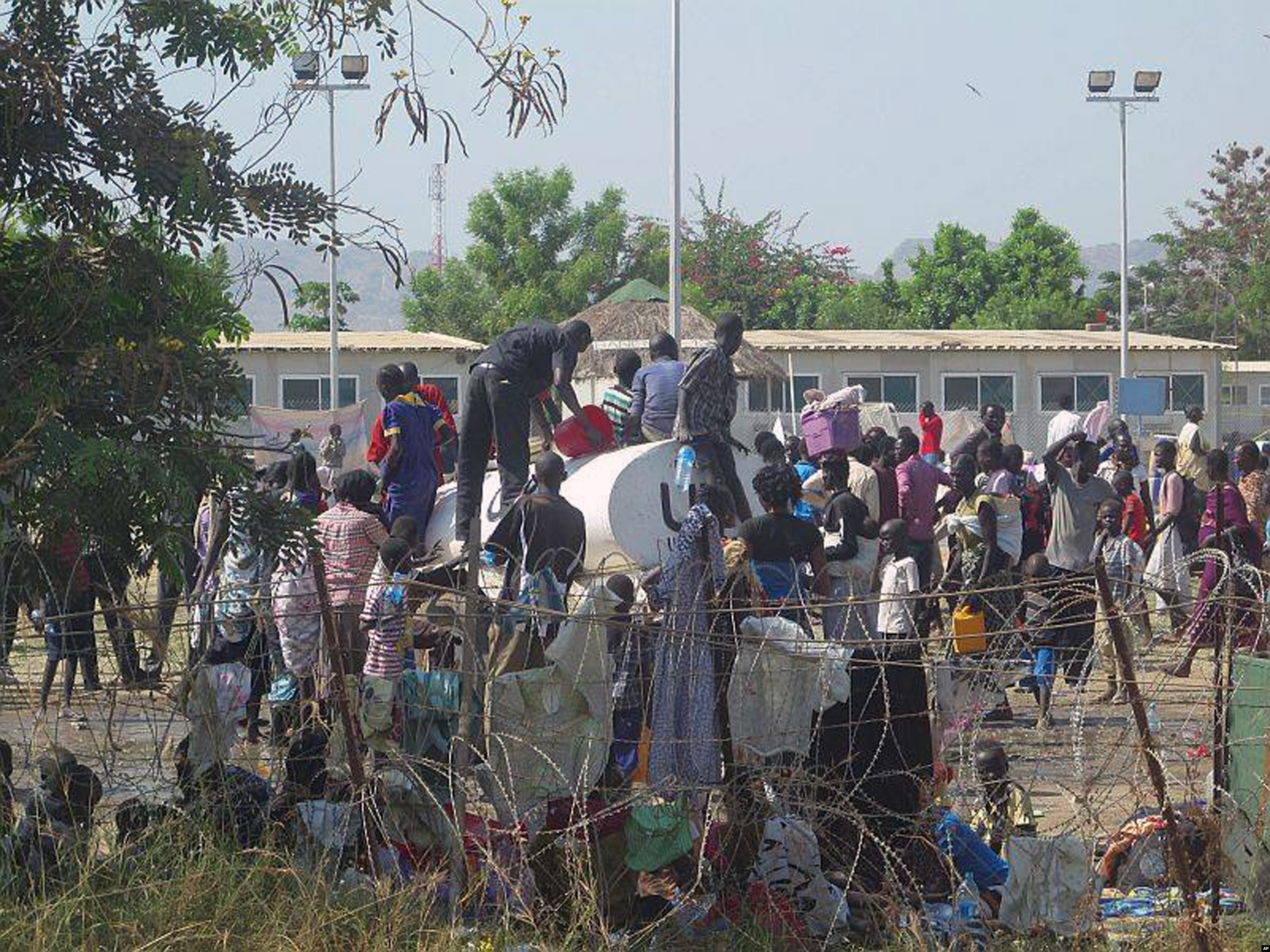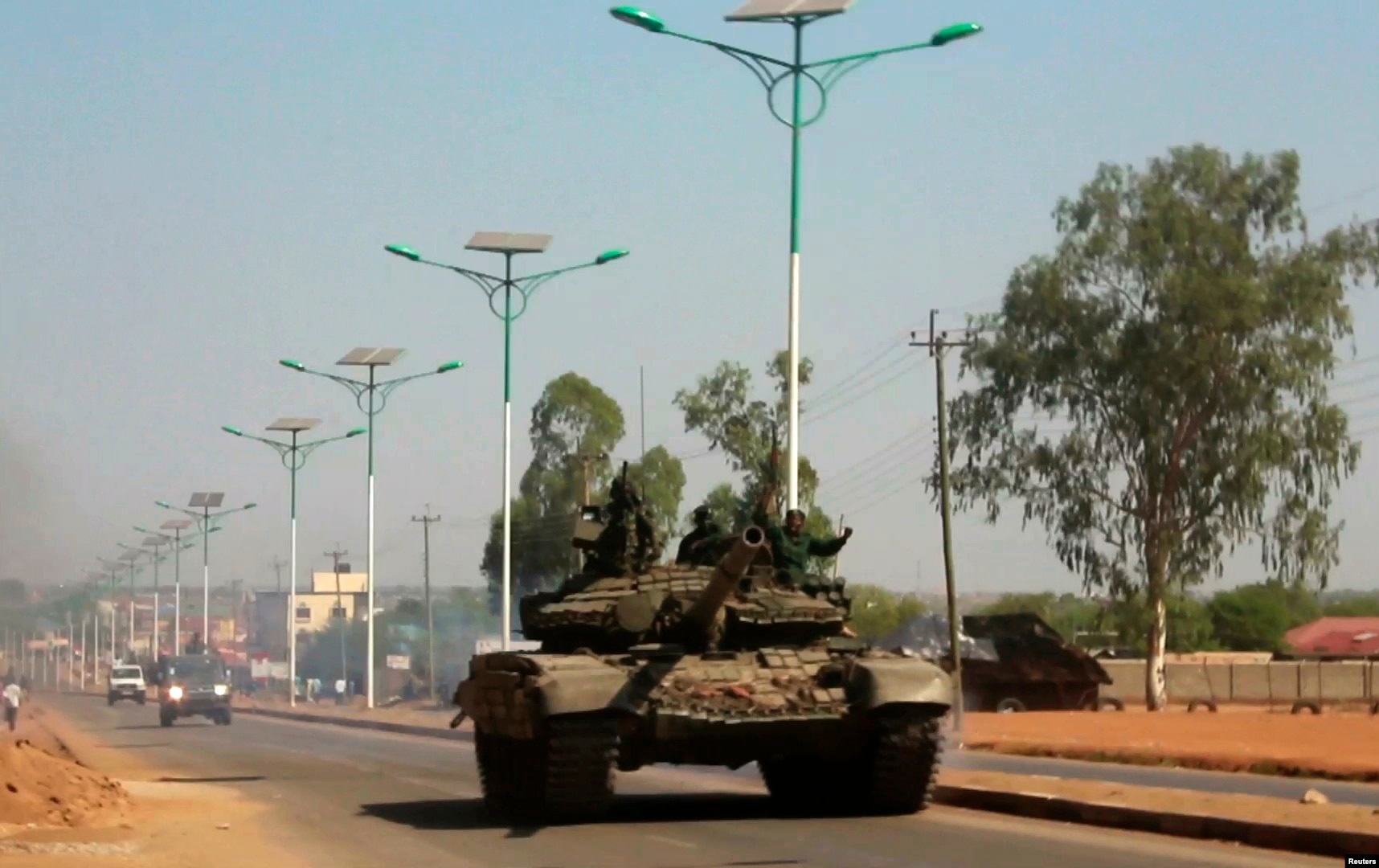▶ South Sudan Conflict: IGAD envoys report progress in negotiations - YouTube: ""
'via Blog this'
Tuesday, December 31, 2013
Monday, December 30, 2013
Sunday, December 29, 2013
African leaders urge talks between S Sudan rivals | Oman Observer
Nairobi — East African leaders yesterday called on South Sudan’s President Salva Kiir and political rival Riek Machar to meet face to face to end the escalating violence in the world’s youngest nation.
Fighting, which erupted on December 15 in capital Juba and spread rapidly to six out of ten states in South Sudan, reportedly claimed hundreds of lives and displaced tens of thousands of people.
The leaders urged Kiir and Machar to meet before year-end, adding that they would not accept South Sudan’s government being toppled through use of military force.
“If hostilities do not cease within four days, the summit will consider further measures,” Ethiopian Foreign Minister Tedros Adhanom told journalists at the end of the meeting in Nairobi.
Heads of state from Kenya, Uganda, Ethiopia, Somalia and Djibouti met with South Sudan’s foreign minister and Sudan’s vice president.
Kiir and his former deputy Machar, whose rebel forces started the conflict, were part of the talks.
Machar, who is in hiding, is demanding that Kiir step down. He has accused the president of being dictatorial, while Kiir has expressed a willingness to negotiate an end to the fighting and to enter talks unconditionally.
“There should be immediate cessation of violence,” Kenyan President Uhuru Kenyatta said during the closed session, according to a tweet by his spokesman Manoah Esipisu.
“South Sudan’s government must guarantee security of all its citizens.” The leaders were meeting as part of an extraordinary summit of the Intergovernmental Authority on Development (IGAD), a day after three-way talks in South Sudan’s capital Juba between Kiir, Kenyatta and Ethiopian Prime Minister Hailemariam Desalegn.
Ethiopia said the Juba meeting had been “constructive.” “IGAD will not allow overthrow of duly and democratically elected democratic government,” Kenyatta said, according to Esipisu.
Ethiopia and Kenya are founding members of IGAD, which includes Djibouti, Somalia, Uganda and Sudan. The bloc was founded in 1986. It has had South Sudan as a member since that country’s independence on July 9, 2011.
The conflict has taken on ethnic dimensions. Kiir belongs to the Dinka, the largest group in South Sudan, and Machar is from the Nuer people.
There have been growing tensions in the ruling Sudan People’s Liberation Movement since independence.
An intensifying power struggle between Kiir, who has a military background with little formal education, and Machar, who has a doctorate from Britain, peaked when key politicians challenged Kiir’s candidacy for the 2015 elections.
That Kiir and Machar come from different ethnic groups and regions within South Sudan caused further political ruptures.
The violence quickly spread to several other states, with fighting being particularly intense in Central Equatoria, Jonglei and Unity states, according to the United Nations Office for the Coordination of Humanitarian Affairs.
At least 92,500 people had been displaced in the conflict, while some 58,000 people have sought shelter at UN peacekeeping bases throughout the country.
Neighbouring Uganda has received more than 7,000 South Sudanese refugees since last week, the Red Cross said. The UN Security Council unanimously adopted a resolution on Tuesday to nearly double its peacekeeping force in South Sudan, adding 5,500 soldiers to the 7,000 already in the country. An additional 1,300 civilian police are to join the mission.
German Foreign Minister Frank-Walter Steinmeier yesterday added his voice to growing calls for an end to the conflict.
“The killing must end,” he said. “The politicians of South Sudan are jointly responsible for ensuring that their young, independent state does not sink into chaos and misery.” — dpa
Fighting, which erupted on December 15 in capital Juba and spread rapidly to six out of ten states in South Sudan, reportedly claimed hundreds of lives and displaced tens of thousands of people.
The leaders urged Kiir and Machar to meet before year-end, adding that they would not accept South Sudan’s government being toppled through use of military force.
“If hostilities do not cease within four days, the summit will consider further measures,” Ethiopian Foreign Minister Tedros Adhanom told journalists at the end of the meeting in Nairobi.
Heads of state from Kenya, Uganda, Ethiopia, Somalia and Djibouti met with South Sudan’s foreign minister and Sudan’s vice president.
Kiir and his former deputy Machar, whose rebel forces started the conflict, were part of the talks.
Machar, who is in hiding, is demanding that Kiir step down. He has accused the president of being dictatorial, while Kiir has expressed a willingness to negotiate an end to the fighting and to enter talks unconditionally.
“There should be immediate cessation of violence,” Kenyan President Uhuru Kenyatta said during the closed session, according to a tweet by his spokesman Manoah Esipisu.
“South Sudan’s government must guarantee security of all its citizens.” The leaders were meeting as part of an extraordinary summit of the Intergovernmental Authority on Development (IGAD), a day after three-way talks in South Sudan’s capital Juba between Kiir, Kenyatta and Ethiopian Prime Minister Hailemariam Desalegn.
Ethiopia said the Juba meeting had been “constructive.” “IGAD will not allow overthrow of duly and democratically elected democratic government,” Kenyatta said, according to Esipisu.
Ethiopia and Kenya are founding members of IGAD, which includes Djibouti, Somalia, Uganda and Sudan. The bloc was founded in 1986. It has had South Sudan as a member since that country’s independence on July 9, 2011.
The conflict has taken on ethnic dimensions. Kiir belongs to the Dinka, the largest group in South Sudan, and Machar is from the Nuer people.
There have been growing tensions in the ruling Sudan People’s Liberation Movement since independence.
An intensifying power struggle between Kiir, who has a military background with little formal education, and Machar, who has a doctorate from Britain, peaked when key politicians challenged Kiir’s candidacy for the 2015 elections.
That Kiir and Machar come from different ethnic groups and regions within South Sudan caused further political ruptures.
The violence quickly spread to several other states, with fighting being particularly intense in Central Equatoria, Jonglei and Unity states, according to the United Nations Office for the Coordination of Humanitarian Affairs.
At least 92,500 people had been displaced in the conflict, while some 58,000 people have sought shelter at UN peacekeeping bases throughout the country.
Neighbouring Uganda has received more than 7,000 South Sudanese refugees since last week, the Red Cross said. The UN Security Council unanimously adopted a resolution on Tuesday to nearly double its peacekeeping force in South Sudan, adding 5,500 soldiers to the 7,000 already in the country. An additional 1,300 civilian police are to join the mission.
German Foreign Minister Frank-Walter Steinmeier yesterday added his voice to growing calls for an end to the conflict.
“The killing must end,” he said. “The politicians of South Sudan are jointly responsible for ensuring that their young, independent state does not sink into chaos and misery.” — dpa
Friday, December 27, 2013
Thursday, December 26, 2013
Thursday, December 19, 2013
South Sudan Army Loses Control of Northern Town
 Medics from the United Nations Mission in the Republic of South Sudan assist civilians at a Cambodian-run hospital in the UNMISS compound, Juba Dec. 18 , 2013. (UNMISS)
Medics from the United Nations Mission in the Republic of South Sudan assist civilians at a Cambodian-run hospital in the UNMISS compound, Juba Dec. 18 , 2013. (UNMISS)
Violence in South Sudan
South Sudan's military announeced that it is no longer in control of Bor, a town north of the capital, after fighting spread there following what the government has called an attempted coup. The South Sudan Red Cross says 19 civilians have been killed in the town.
Meanwhile, the country's information ministry reported that security forces are in "absolute control" of the situation in Juba, the capital. The government says 500 people have been killed there, with at least another 700 wounded since clashes began Sunday.
 Bor, South Sudan
Bor, South Sudan
President Salva Kiir blames the alleged coup attempt on forces loyal to his former vice president, Riek Machar, whom he fired in July. Kiir said Wednesday he is willing to hold talks with Machar.
United Nations Secretary-General Ban Ki-moon has urged the president to engage with his opponents and cooperate with the U.N.
"This is a political crisis, and urgently needs to be dealt with through political dialogue. There is a risk of this violence spreading to other states, and we have already seen some signs of this," said Ban.
Ban also said on Wednesday that as many as 20,000 people have taken refuge with the U.N. mission in Juba. South Sudanese officials have urged residents to return to their homes following the deadly clashes.
The International Committee of the Red Cross, however, says many civilians are "too scared to go home."
ICRC spokesperson Cynthia Lee told VOA the two main hospitals in Juba are overstretched as they attempt to deal with the influx of fighting casualties. She said her group has delivered wound dressing materials and medicine to treat the victims at the hospitals.
Observers have raised concerns that a rift between Machar, from the Nuer ethnic group, and Kiir, a Dinka, could fuel tribal violence in South Sudan.
South Sudan's government said 10 people have been arrested for their alleged roles in the coup attempt, but Machar remains at large.
Britain announced that it is withdrawing some embassy staff from South Sudan after the fighting spread to areas beyond the capital, but the embassy will remain open.
The U.S. State Department said it has evacuated three groups of American citizens from South Sudan, and at least one other evacuation has been organized for Thursday.
Ambassador Susan Page met Wednesday with President Kiir in Juba to discuss U.S. concerns about the continued violence, increasing death toll and growing humanitarian challenges.
Meanwhile, the country's information ministry reported that security forces are in "absolute control" of the situation in Juba, the capital. The government says 500 people have been killed there, with at least another 700 wounded since clashes began Sunday.
President Salva Kiir blames the alleged coup attempt on forces loyal to his former vice president, Riek Machar, whom he fired in July. Kiir said Wednesday he is willing to hold talks with Machar.
United Nations Secretary-General Ban Ki-moon has urged the president to engage with his opponents and cooperate with the U.N.
"This is a political crisis, and urgently needs to be dealt with through political dialogue. There is a risk of this violence spreading to other states, and we have already seen some signs of this," said Ban.
Ban also said on Wednesday that as many as 20,000 people have taken refuge with the U.N. mission in Juba. South Sudanese officials have urged residents to return to their homes following the deadly clashes.
The International Committee of the Red Cross, however, says many civilians are "too scared to go home."
ICRC spokesperson Cynthia Lee told VOA the two main hospitals in Juba are overstretched as they attempt to deal with the influx of fighting casualties. She said her group has delivered wound dressing materials and medicine to treat the victims at the hospitals.
Observers have raised concerns that a rift between Machar, from the Nuer ethnic group, and Kiir, a Dinka, could fuel tribal violence in South Sudan.
South Sudan's government said 10 people have been arrested for their alleged roles in the coup attempt, but Machar remains at large.
Britain announced that it is withdrawing some embassy staff from South Sudan after the fighting spread to areas beyond the capital, but the embassy will remain open.
The U.S. State Department said it has evacuated three groups of American citizens from South Sudan, and at least one other evacuation has been organized for Thursday.
Ambassador Susan Page met Wednesday with President Kiir in Juba to discuss U.S. concerns about the continued violence, increasing death toll and growing humanitarian challenges.
Tuesday, December 17, 2013
Sunday, December 8, 2013
Ethiopia Agree with Sudan on Establishment of Free Trade Zone and stop former opposition infiltrating though their Joint Borders
Sudan and Ethiopia have agreed on establishment of a free trade and economic zone at the joint border between the two countries, half of it is to be inside Sudan and the other half is to be in Ethiopia, with the aim to attracting investments of both countries and neutralizing Ethiopian armed groups from using Sudan as stepping stop to dis-stabilize the ethnically profiled Addis Abab regime in Ethiopia. The objective of the Ethiopian government is to stop the opposition groups will not infiltrate from Sudan to topple the regime.
At the joint press conference he held Wednesday evening at the Friendship Hall with the Ethiopian Prime Minister, Hailemariam Desalegn, President Al Bashir said the proposed free trade zone will push ahead the economic and trade relations between the two countries, pointing the large potentialities enjoyed by Sudan and Ethiopia.
He said that the talks between the two sides were held in an atmosphere of fraternity and harmony that reflected the level achieved in the bilateral relations between Khartoum and Addis Ababa, indicating that the Sudanese and Ethiopian sides have signed 12 agreements and memos of understanding on cooperation in the trade, investment, electricity power, local and federal government, customs, youths, sports, banking and other fields.
Meanwhile, the President of the Republic affirmed Sudan keenness to contribute to realization of security and stability at the Horn of Africa area.
He said that Sudan distinguished relations with Ethiopia and Eritrea qualifies it to play a role for ending the tension in the relations between the two countries.
 President Al Bashir appreciated the firm stance adopted by the African countries concerning the so-called International Criminal Court which is regarded by the African leaders as a mechanism of neo-colonialism.
President Al Bashir appreciated the firm stance adopted by the African countries concerning the so-called International Criminal Court which is regarded by the African leaders as a mechanism of neo-colonialism.
At the joint press conference he held Wednesday evening at the Friendship Hall with the Ethiopian Prime Minister, Hailemariam Desalegn, President Al Bashir said the proposed free trade zone will push ahead the economic and trade relations between the two countries, pointing the large potentialities enjoyed by Sudan and Ethiopia.
He said that the talks between the two sides were held in an atmosphere of fraternity and harmony that reflected the level achieved in the bilateral relations between Khartoum and Addis Ababa, indicating that the Sudanese and Ethiopian sides have signed 12 agreements and memos of understanding on cooperation in the trade, investment, electricity power, local and federal government, customs, youths, sports, banking and other fields.
Meanwhile, the President of the Republic affirmed Sudan keenness to contribute to realization of security and stability at the Horn of Africa area.
He said that Sudan distinguished relations with Ethiopia and Eritrea qualifies it to play a role for ending the tension in the relations between the two countries.
Tuesday, December 3, 2013
Sudan-Ethiopia committee reach agreements as Desalegn arrives in Khartoum - Sudan Tribune: Plural news and views on Sudan
December 2, 2103 (KHARTOUM) - The Joint Sudanese - Ethiopian Higher Committee (JSEHC) has concluded its meetings at the experts level, and reached several economic and political agreements and understandings aiming to develop bilateral relations, as the Ethiopian Prime Minister will arrive on Tuesday.
- Ethiopian Prime Minister Hailemariam Desalegn (Getty)
The Sudanese side of experts committee was headed by the general director of bilateral relations at Sudan’s ministry of foreign affairs, Abdel-Mahmoud Abdel-Halim while the Ethiopian side was headed by director of the African department at Ethiopia’s foreign ministry, Solomon Ababa.
The two delegations reached agreements to enhance trade in areas of transportation, customs, standards and metrology, civil aviation, media, and communication. The understandings covered social, cultural, sports, and tourism domains.
The meeting further applauded progress in work of the joint borders committees in the previous meetings and underscored the need to enhance cooperation between border regions.
The Sudanese foreign ministry spokesperson, Abu Bakr Al-Siddig, on Monday also denied existence of border disputes between the two countries, pointing that there are small differences on limited points at the border area.
Farmers from two sides of the border used to dispute the ownership of land in the Al-Fashaga area located in the south-eastern part of Sudan’s eastern state of Gedaref.
Ambassador Al-Siddig, disclosed that technical committees which are currently meeting in Khartoum have embarked on putting border signs for the border re-demarcation in order to organise trade and movement between the two countries.
He added that the two countries agreed to coordinate positions on the regional and international issues particularly the situation in Somalia besides signing a memorandum of understanding for cooperation and coordination between the foreign ministries, pointing that the Sudanese side briefed its Ethiopian counterpart on the progress of cooperation with South Sudan.
This fifth JSEHC meetings would witness the signing of a strategic framework agreement by president, Omer Hassan Al-Bashir, and Ethiopia’s Prime Minister, Hailemariam Desalegn.
Desalegn will arrive in Khartoum on Tuesday at the head of a high level delegation to participate in the meetings JSEHC and inaugurate the power linkage network between the two countries.
The JSEHC meetings at ministerial level would begin on Tuesday. The Sudanese side would be headed by the foreign minister, Ali Karti, while the Ethiopian side would be headed by the foreign minister, Tedros Adhanom.
(ST)
Subscribe to:
Comments (Atom)

